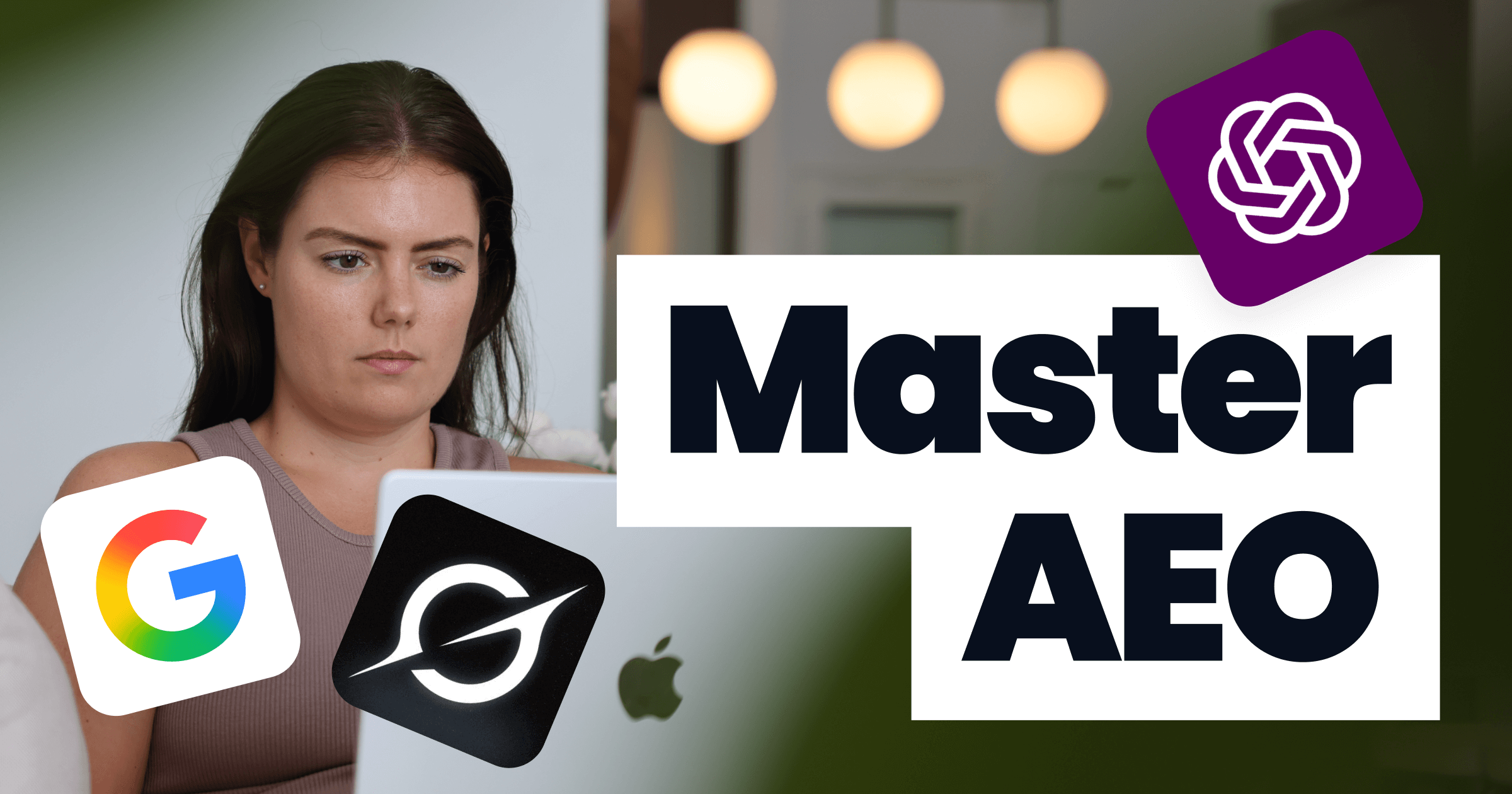
The Gulf Cooperation Council (GCC) region, comprising Saudi Arabia, the United Arab Emirates, Qatar, Kuwait, Oman, and Bahrain, presents a unique opportunity for businesses looking to expand their market presence.
With a combined population of over 54 million and a rapidly growing economy, the GCC is attracting increasing attention from international companies.
However, successfully entering this market requires more than just a robust product offering; it necessitates a deep understanding of the local culture, language, and consumer behavior in the GCC.
Localization and cultural understanding are pivotal to navigating the GCC market. This article explores effective strategies for launching into the GCC, focusing on language localization, cultural adaptation in marketing, and strategies to deploy to ensure your brand successfully resonates with local consumers.
Understanding the GCC Landscape
The GCC region is characterized by its rich cultural diversity and significant economic potential. With a blend of traditional values and modern consumer behaviors, understanding the local landscape is essential for businesses.
For instance, the UAE is known for its cosmopolitan lifestyle, while Saudi Arabia retains a more traditional environment.
Cultural norms can vary significantly across these countries, impacting consumer preferences and expectations. To effectively engage with GCC consumers, businesses must recognize these differences and tailor their strategies accordingly.
The Importance of GCC Localization
With 68% of consumers saying they would switch to a different brand that offers support in their native language, localization has never been more important.
What’s more, 56.2% of consumers say that the ability to obtain information in their own language is more important than price, meaning companies that do not deploy localization strategies are leaving huge amounts of revenue on the table.
Localization is not merely about language translation; it encompasses a comprehensive understanding of local dialects, consumer behaviors, and cultural nuances.
Despite English being a hugely adopted language in the business arena, and often an official language of GCC countries, Arabic is still the foundation, with various dialects and forms that differ significantly.
“Even though Arabic is mainly subdivided into three main versions as Quranic or Classical Arabic, Modern Standard Arabic, and Colloquial or Daily Arabic, it wouldn’t be wrong to estimate that over 25 dialects of Arabic are spoken globally.” - Tarjama

By localizing content, businesses can enhance their brand's relevance and relatability. This includes not only translating marketing materials but also adapting messaging to fit local cultural contexts.
Studies indicate that localized marketing can increase conversion rates by up to 75%, with 72.4% of consumers saying they would be more likely to buy a product with information in their own language.
Key GCC Localization Strategies
- Cultural Sensitivity: Understanding cultural references and sensitivities is crucial. This includes avoiding imagery or messaging that may be considered offensive or inappropriate in local contexts. For example, depicting certain attire or behaviors might not resonate well in more conservative societies.
- Tailored Messaging: Creating content that speaks to the local target audience's values and beliefs fosters a sense of connection. For instance, marketing campaigns that emphasize family values may resonate more in collective cultures prevalent in the GCC.
- Multilingual Market: English and Arabic are both widely used in business contexts. Offering content in both languages ensures broader accessibility and appeals to expatriates and local populations alike.

Cultural & Contextual Changes in Communications
Adapting marketing campaigns to reflect local culture is essential for success in the GCC. This involves not only language but also understanding local customs, traditions, and social norms.
Brand Values
When reaching a new region with different cultural norms and expectations, it’s important to review whether your company values align with those of your target audience.
For example, whilst sustainability and environmentally-friendly practices are more prominent generally on a global scale, they have even more impact in GCC areas.
“Despite concerns about the cost of living, most consumers prioritize environmental and social responsibility in brands, as evidenced by 58% of young GCC Arabs willing to boycott environmentally neglectful firms.” - KPMG Lower Gulf
Ensuring that your brand displays strong values that local consumers can get onboard with is crucial in building trust between your brand and your audience.
Local Customs & Values
The GCC region has a rich heritage that shapes consumer behavior. For instance, the concept of "wasta", or leveraging personal connections, plays a significant role in business dealings. Recognizing this can inform how companies approach networking and partnerships in the region, since it is significantly different to Western norms.
In particular, “wasta” refers to the constructs of reciprocity, empathy, and trust, suggesting that business dealings will not be affirmed unless these foundations are in place. Contrastingly, in many Western countries, financial discussion, budgets, timelines, etc. are the key to winning business.
The concept of “wasta” requires a very different approach to business in GCC regions and provokes a mindset shift for managers and sales teams who have previously dealt in the western world.
Building relationships and trust through face-to-face interactions is often preferred over direct negotiations, meaning brand managers, sales representatives and business owners must adapt their communication strategies accordingly, prioritizing relationship-building over transactional approaches.
It’s also worth noting that while some cultures emphasize informal communication, the GCC often values formality in business interactions. Addressing individuals with their appropriate titles and using formal greetings can help establish credibility and respect. Not to mention appropriate dress. A polished, formal appearance is expected in the GCC - something to bear in mind when dealing with face-to-face business interactions.
Cultural Holidays
Additionally, events such as Ramadan and Eid are pivotal moments for consumer spending, with many businesses launching special promotions or campaigns around these times. For example, Deliveroo and UAE Restaurants came together to support riders iftar meals, discounts, and vouchers throughout the month of Ramadan, promoting strong brand values through timely, culturally relevant marketing.

Whilst western businesses may be familiar with running Christmas sales campaigns, it’s important to take note of important days in the calendar year in the Arab world to maximize local impact.
Research shows that “retail sales across the region last year reached USD 66 billion during the holy month [in 2023], which almost matched Black Friday, the most significant shopping event in the Middle East, for total sales.” - HiDubai
To put that figure into context, retail spending during the holy month of Ramadan across the Middle East and North Africa region was 1.5x greater than the entire GDP of Bahrain!

Seasonal Events
Companies looking to launch into GCC regions with seasonal products or services should consider the different ‘seasons’ in local areas. For example, “back-to-school” campaigns are a global hit, but did you know that the school calendar differs region-to-region.
Whilst UK-based businesses are familiar with the back-to-school season hammering starts in early September, schools in GCC regions have already had their classrooms open for 2 weeks, having finished in late June as opposed to mid-July. Slight shifts in calendar events can be crucial for maximizing business opportunities in the GCC.
Marketing Messages
Successful brands often incorporate storytelling that resonates with local audiences. This can include using local heroes, referencing popular cultural symbols, or simply relating to local cultural and family values in marketing materials.
For instance, Majid Al Futtaim, a leading retail and leisure pioneer, successfully engages consumers by weaving local culture into their marketing strategies, showcasing how they are part of the community.
Adapting Customer Journeys
To effectively enter the GCC market, businesses must customize the customer journey to fit local preferences. This involves understanding how consumers interact with brands, the channels they prefer, and their purchasing behavior.
Personalized Marketing in GCC Regions
Personalization and customer experiences are key drivers of customer satisfaction. In the GCC, consumers expect brands to understand their individual needs and preferences.
“UAE customers, in particular, want more personalized experiences, value for their dirham, and seamless, omnichannel processes.” - KPMG Lower Gulf
Forward-thinking GCC regions like Dubai are also not adverse to AI and machine-learning technology, with huge advancements in the region. The Dubai Government openly implements AI in service delivery and encourages future-driven companies leaning on AI to relocate to the region. With that in mind, businesses should lean into the powers of AI in personalizing marketing communications.
Marketing Channels & Communication Preferences
Understanding preferred communication channels is essential. Social media platforms like Instagram and WhatsApp hold incredible value in GCC regions as digital platforms and technology sit at the forefront of this forward-thinking region.
Whilst WhatsApp may seem a more personal communication method in western countries, it’s a powerful business tool in Dubai, the surrounding Emirates and GCC countries. In the UAE, more than 85% of the country's total population use WhatsApp, putting consumers quite literally in the palm of marketers.
WhatsApp and SMS marketing should be an essential aspect of the customer journey for marketing strategies in the region.
Furthermore, the GCC has a high rate of mobile phone penetration, meaning brands must ensure that their websites and marketing materials are optimized for mobile devices to provide a seamless experience.
Key Strategies for Effective GCC Localization
To successfully navigate the complexities of the GCC market, businesses should adopt effective localization strategies.
Choosing the Right Localization Partner
Selecting a reputable localization partner is critical. Companies should look for agencies that have a presence in the GCC region and understand local nuances. That’s not to say that a partner themselves must be multilingual, but they must understand the importance of multi-language marketing in the GCC and have strategies in place to navigate this.
At Beyond, we are incredibly familiar with the GCC landscape and have systems in place to offer professionally out-sourced translations or to seamlessly work with a local partner as the language expert in order to ensure that marketing messages are accurately conveyed and resonate with local consumers.
Customizing Marketing Messages
Tailoring marketing messages to fit local culture and preferences is essential. This includes using local language, references, and cultural symbols to create relatable content. For example, adapting promotional materials for Ramadan can enhance engagement and sales, enabling brands to take advantage of the growing Ramadan spending that has been seen across the region:

Adapting Visuals & Branding
Visual elements should also be adapted for local relevance. This includes considering cultural sensitivities in imagery, colors, and branding. For instance, using certain colors may have different connotations in the GCC compared to Western cultures.
It’s also important to understand the demographics of the region and carefully craft your customer avatar. In 2024, loud, bold Tik-Tok-able brands are performing incredibly in Dubai, as are ultra-luxury brands - if you fall into one of these categories, you may be entering an upward market that you can use to your advantage.
Leveraging Existing Content for Localization
A strategic approach to localization involves not just creating new content but also effectively leveraging existing content. By repurposing current materials, businesses can maximize their marketing efforts and significantly enhance their ROI in the GCC market.
1. Assessing Current Content Assets
Begin by conducting a thorough audit of your existing content. Identify valuable resources, such as marketing materials, product descriptions, manuals, and user-generated content. Understanding what content is already available allows businesses to determine which pieces can be localized for different markets in the GCC.
For instance, if a company generates approximately 1 million words per year in English content, it could potentially translate a substantial portion into local languages, significantly broadening its reach without incurring the full costs associated with new content creation.
Research shows that this approach to localized marketing is much more cost-effective than generating brand new content, with a 5.8X return on investment compared to the same amount spent on authoring new content in English.
Take this example where fully-loaded content production costs $1 per word, making initial English-language content a $1,000,000 investment. If the same costs repeated themselves for brand new content generation in an additional language, you’d see $2,000,000 invested into bi-lingual content. However, repurposing the original through translation comes in at $0.15 per word - a significantly smaller investment than the original English content.
This indicates a strategic advantage in allocating resources toward the localization of existing materials rather than developing new content from scratch. Where companies serve multiple regions, especially the GCC, translating existing content could just be the answer to breaking through into a new market for less than you think.

2. Implementing Efficient Localization Processes
Develop streamlined processes for the localization of existing content. Utilize translation memory tools and content management systems to help manage and reuse previously translated content. This not only saves time but also ensures consistency across different languages and cultures.
Investing in technology that enables the efficient translation of your existing content can reduce localization costs and improve turnaround times. This includes leveraging automated tools for initial translations and employing human translators for final reviews to ensure quality.
3. Localized SEO
We all know the power of SEO, but when we refer to localized SEO, many people come to the conclusion that this is content in their single base language, targeting other areas. For example “marketing in Saudi”, “toilet roll in Jeddah” “tuition in Bahrain”. But it’s much more than this.
Localized SEO refers to not only page content in localized languages but also the impact on keyword search volumes and opportunities which will differ significantly from region to region. Just think about the difference between UK job-hunters searching for “CV templates” versus American job-hunters searching for “resume templates”. Any company serving both of these regions with career resources should consider targeted SEO campaigns for both phrases, and that’s in the same language! Now consider the stark contracts between multi-language searches.
Localized SEO strategies should encompass not only translations, but contextual nuances, the impact on keyword strategies, backlinks from local sources, imagery and their alt tags, and a whole range of other aspects that impact organic traffic performance.
4. Monitoring & Analyzing Localization Impact
After launching localized content, closely monitor its performance. Use analytics tools to track engagement metrics, sales, and customer feedback across different languages. This data-driven approach allows businesses to refine their localization strategies continuously and maximize the impact of their localized content.
By analyzing which localized content performs best, companies can make informed decisions about future localization efforts and potentially identify new opportunities for content repurposing.
Successful GCC Marketing Strategies by Global Brands
Almost 90% of major global brands say they’re deploying localization in marketing.
Examining successful brands that have effectively localized their strategies in the GCC can provide valuable insights…
Example: Unilever in Saudi
Unilever strengthened brand presence in the GCC market by sponsoring the 94th Saudi National Day.
“Using 125,000 fresh flowers, 5,600 flower pots across 94 square meters, Comfort created a floral masterpiece that broke a world record in Jeddah, Saudi Arabia.” - Unliever
Not only did the Unilever brand partake in one of the most culturally significant events of the Saudi calendar, they also fulfilled the campaign in Arabic:
Unilever has seen significant regional growth for their brands, demonstrating the importance of cultural adaptation in the GCC.
Example: Coca-Cola in GCC

Coca-Cola's marketing campaigns during Ramadan have been particularly successful. By launching a Ramadan-orientated campaign video, Coca-Cola leveraged their ‘Christmas Truck’ to deliver coca-cola bottles under the twinkling fairy lights of street-party Iftars.
Coca-Cola has effectively engaged with consumers and strengthened its brand presence in the GCC through this cultural approach:
Tools and Resources for Localization
To support localization efforts, businesses should leverage various tools and resources.
Technology Solutions
Utilizing translation and localization software can streamline the process of adapting content for different languages and cultures. Tools that facilitate collaboration between teams and localization partners can enhance efficiency and accuracy.
Ongoing Cultural Immersion
Investing in first-hand on-the-ground experience for employees can foster a better understanding of local customs and practices. This equips teams with the knowledge needed to engage effectively with GCC consumers and navigate cultural nuances.
Challenges of Entering the GCC Market
Despite its potential, entering the GCC market comes with challenges. Companies must navigate regulatory requirements, cultural differences, and a competitive landscape.
- Cultural Misunderstandings: Failing to understand local customs and cultural practices can lead to marketing blunders. This highlights the need for thorough market research for GCC entry before launching marketing campaigns.
- Regulatory Hurdles: The GCC countries have specific regulations regarding advertising and marketing practices. For instance, certain types of products or content may be prohibited, and brands must ensure compliance with local laws to avoid fines and reputational damage.
- Competitive Landscape: The GCC market is highly competitive, with numerous local and international brands vying for consumer attention. Companies must conduct thorough market research to identify gaps and opportunities that align with their strengths.
Successfully Entering the GCC
Entering the GCC market presents both opportunities and challenges for businesses. By prioritizing language localization, cultural adaptation, and tailored customer journeys, companies can effectively connect with local consumers and build a strong brand presence in the region.
As the GCC continues to grow as a hub for commerce and innovation, understanding and respecting local cultures will be crucial for long-term success.
Businesses that invest in localization strategies and cultural awareness will not only enhance their market entry efforts but also foster trust and loyalty among consumers in the GCC.
If you’re looking to tailor your marketing campaign to reach customers in the GCC, book a call with us!

Just a heads up, some of the links in this article may be affiliate links, meaning we may make a small commission on any sign-ups or purchases for the tools we recommend.






































